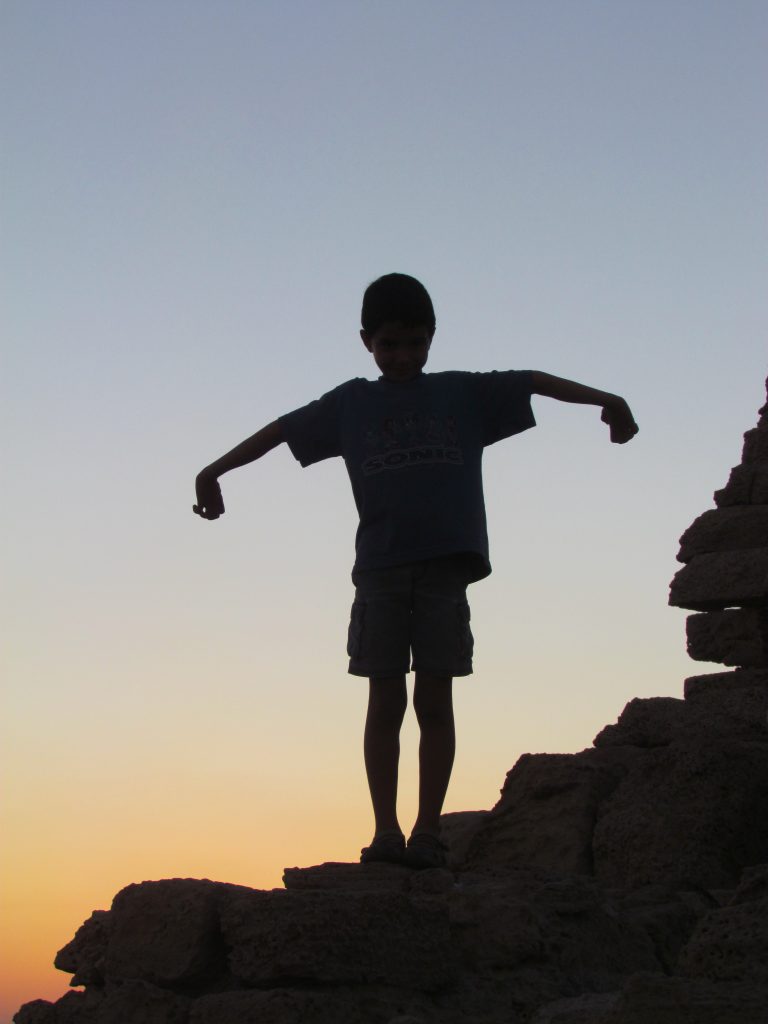Since this current round of fighting began, I’ve been overwhelmed by the concern shown in emails, messages and chats – friends, relatives and acquaintances checking in to see how we’re doing, voicing their love and support (both for us personally and for Israel as a whole) and reminding us to “stay safe”. And yet, no matter how many times I tell friends and loved ones abroad that we don’t live within missile range, it continues to sound like one of the most surreal statements I’ve ever written. Even after living here for more than twenty years, it’s still jarring to have to talk about one’s life in such terms, especially when our usual state of normal isn’t much different from the way my peers are living abroad.
There’s something very unnerving about day-to-day life under these conditions. On the one hand, a large portion of the southern part of the country is essentially under siege, being hit with barrage after barrage of missiles. Friends in the central part of the country have gotten a small – some would say very small – taste of what that’s like too, as Hamas tries to flex its muscles and show off its capabilities by periodically firing rockets in the direction of the greater Tel Aviv area and even towards Jerusalem. Yet here in the relative north, aside from noting the absence of colleagues and friends who’ve been called up for duty and a difference in the traffic on the roads, life continues as usual. It’s been so “normal”, in fact, that I haven’t felt the need to actually explain to my eight-year-old son what’s going on, instead preferring to follow his lead and address his questions as they arise.
I still haven’t decided if this is actually the right way to go, so I suppose this tactic is based more on my inability to be decisive than anything else. And that’s because the decision to admit to your child that your country is involved in military action is gut-wrenching. Sometimes, obviously, you don’t have a choice. When rockets are flying overhead on at least a semi-regular basis (or even just occasionally) and sending everyone running in a panic for shelter, parents just don’t have the luxury of keeping such information secret. The best they can hope for is to try to put on a brave face and not let their children understand the frightening reality of the situation inasmuch as that’s even possible.
I, on the other hand, am blessed with the luxury of choice, and for now, I’m choosing to attempt to preserve whatever remains of my son’s innocence regarding such matters. Some might disagree with my decision, but as I see it, I can always tell him, but once it’s out there, I can’t take it back. Yesterday his ears perked up when the southern town of Kiryat Malachi was mentioned in the news. He knows that his father is from there and that his uncle still lives there, and I’ve done my best to not let him find out that three people were killed and others injured when a missile slammed into an apartment there last week. I don’t want him to be afraid to visit once the fighting is behind us, and I’m not sure how his mind would process this terrible tragedy. He knows that the father of one classmate was called up for reserve duty, but I’m not sure if he knows about the other one. I haven’t told him that a neighbor was called up, nor have I told him about the father of two schoolmates – a close friend he knows well – who was among the first to get called.
I don’t want to burden him with the fear that comes from a lack of comprehension regarding the situation (in that where we live is “safe”; that he doesn’t need to be afraid of the missiles), nor do I want him worrying about friends and relatives who either live in the affected areas or who have been called up (especially since his mother is doing that enough already). Growing up in Israel, I’m reasonably certain that he will have other opportunities to bear witness to such activities. Life here is only as normal as the stability and restraint in the regional neighborhood in which we live. For now – or at least for today, I think I prefer to stave off his awareness of the true nature of our normal.

